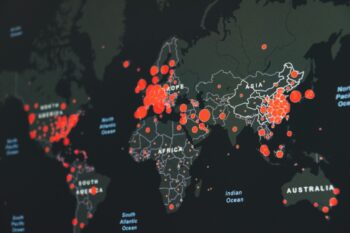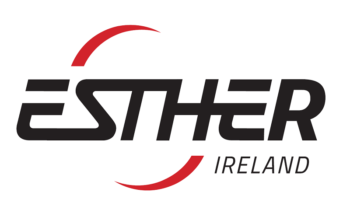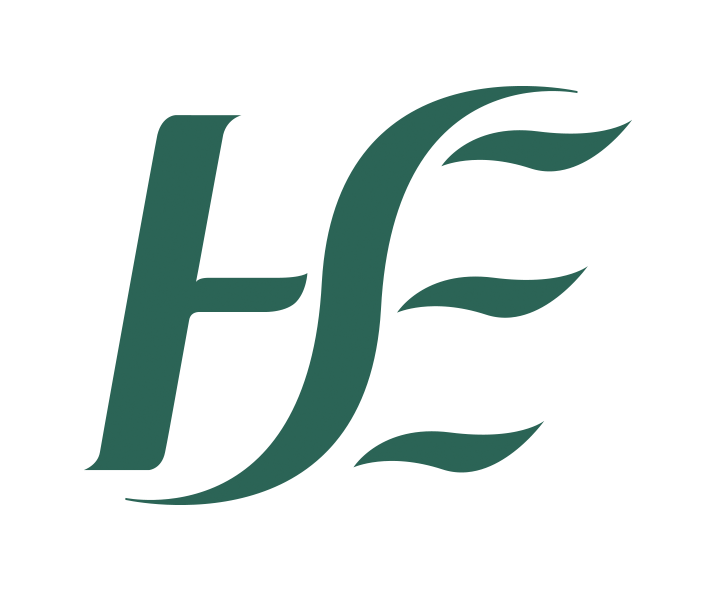Building on ESTHER Ireland’s aim of supporting equitable partnerships in Global Health, the Equity in Action Blog provides a platform to further discussions on what it takes to achieve global health equity. The blog is part of our journey of understanding decolonisation, challenging existing narratives and actively contributing to the collective effort of creating a more equitable and just Global Health landscape
These original Equity in Action blogs, showcase the insights of diverse voices from the ESTHER community and collaborators. From the inaugural blog post by Christian Acemah, the Executive Secretary of the Uganda National Academy of Sciences (UNAS), entitled ‘Of Legacies in Practice of Global Health Partnerships’ through to our fifth blog in the series contributed by Tobi Olukoya, professional intern with the IGHN, we invite you to read below and through the following pages to take a journey through Equity in Action.
Data Sovereignty: Whose Numbers Count? The people and the stories behind the numbers
By Tobi Olukoya

Imagine data as more than just numbers on a spreadsheet. Picture it as a rich tapestry of stories, each thread weaving together narratives of communities, their struggles, and their triumphs. Often relegated as cold, hard facts used to analyse, set predictions, and inform decision-making, data carries an inherent power that transcends beyond its numerical value. Each data set – be it health statistics or social indicators – encapsulates more than just mere figures, but instead reveals the lived experiences of people; their vivid reflections and unique realities.
However,
the way in which we collect and interpret this data is far from neutral and not always grounded in objectivity.
The Western Dominance in Health Metrics
In today’s world, data is often hailed as the unbiased bedrock upon which policy decisions are built and resources allocated. While this is true in some instances, it is important to acknowledge that the same ‘unbiased bedrock’ can sometimes be flawed, misinterpreted, or inappropriately cited in other cases.
Dominated by Western health metrics and methodologies, standard data collection practices in the global health context often overshadow the voices of diverse communities, muffling the cultural contexts and local intricacies that shape their unique health landscapes (Antić, 2021). Add to that a deep-rooted reliance on medicalised definitions for health, diseases and compartmentalised categories, which often sideline non-western perspectives. ‘It is unsurprising then that specific definitions of global health shift to reflect the various positionalities of the actors, academics and policy makers working in these spaces’ (Burgess, 2023 pp.3).
Confronting the issue of western compartmentalised health metrics is not new. In academia and development practice, these metrics, now commonplace, tend to dissect health into isolated categories favouring the physical manifestations in health outcomes more. This monotonous, almost reductionist approach overlooks the interconnectedness that defines health in different cultural contexts, almost always failing to capture the holistic nature of health and well-being across diverse populations (Davis, 2016).
Don’t get me wrong – data and data collection methods are crucial for identifying issues and later establishing a foundation for effective solutions. They offer a clear picture and allow us to logically understand the impact of global health challenges through a structured numerical lens. What I question is the imposition of these western perspectives and their supposed validity in this context – a ‘validity’ that, in some cases, reinforces a sense of superiority within the Global North, particularly among former colonial powers. There remains a tendency, especially towards the so called ‘Third World’ (a term I use cautiously), to overlook the fact that these regions possess their own knowledge and solutions. This is not to say everyone working in global health holds such views, but the pattern is still noticeable.
We’ve all encountered the terms ‘saviorism,’ ‘paternalism,’, and ‘tokenism,’ among countless other isms. These buzzwords have rapidly gained traction in the discourse on decolonialising global health, data colonialism and data sovereignty. But why have they become so prominent? And for what purpose?
All these terms share a common thread: they describe attitudes and behaviors rooted in a paternalistic mindset, often seen in individuals from privileged, typically western, backgrounds when engaging with marginalised communities. To different degrees they all involve the belief that people from developed countries have the solutions to problems faced by these communities, usually without a deep understanding of the local context, culture, or actual needs. Perpetuating stereotypes of dependency and helplessness but also reinforcing existing power imbalances and colonial mindsets ( Zakumumpa et al, 2023). This type of thinking can further reinforce the same inequities, eroding community autonomy, their agency and incentivising a lack of local buy–in, in return (Ruger, 2016).
Which raises an important question: whose experiences, data, and expertise truly matter when addressing some of the world’s enduring global health challenges? For, if not swiftly addressed, this imposition can quickly resemble the colonialist dominance that the forefathers of the Global South fought so fiercely to dismantle.
You might have read the first part of this piece and thought it seemed rather negative, perhaps wondering if I’m simply dismissing outright the good work of western development practitioners who monitor and evaluate said data to create beneficial toolkits for the populations they serve. I assure you, that’s not my intention. I write not to invalidate the valuable efforts of our peers; rather, I aim to encourage critical reflection on past work and to propose a more equitable way forward.
Toward Inclusive Health Metrics
With that in mind, I’d like to share some insights into new and improved approaches challenging the status quo. But first, I challenge you to reflect on your own social and cultural position relative to the context in which you are operating. For understanding how your identity, experiences, and inherent power dynamics influence your interactions and interventions in diverse settings is essential when moving beyond the pitfalls of saviorism and towards more ethical and effective engagements that honors and uplifts the communities we aim to serve.
Following that, I invite you to reflect on the following points:
- Centering Local Voices: engage community members as equal partners in the design, implementation, and evaluation of projects. This ensures that interventions are relevant and sustainable (Shiffman and Shawar, 2020).
- Building Capacity: prioritise initiatives that build local capacity and empower communities to lead their own development processes. Encourage pluralism of participation in metrics production (Shiffman and Shawar, 2020).
- Long-term Commitment: move away from short-term, feel-good projects towards long-term engagements that are rooted in the needs and aspirations of the community (Brocher Declaration, Bullet point 6- Accountability for actions).
- Ethical Storytelling: represent communities in ways that highlight their strengths and resilience, rather than perpetuating narratives of helplessness or victimhood (Contributor-led stories and locally led content development – Dochas Guide to Ethical Communications, pp.9)
To conclude, decolonising health metrics and data is not just about changing how we collect and interpret information; it’s about recognising and valuing diverse ways of knowing and being. Although funders often require a standardised M&E framework, this can and should be complemented by community storytelling and/or case studies. These narratives provide rich, contextual insights that quantitative data alone cannot capture. Integrating these approaches would allow global health practitioners to embrace a more holistic understanding of health outcomes, making global health initiatives more inclusive, responsive and truly representative of the communities they serve. The question remains whether global health practitioners and funders alike are open to this shift, but the potential benefits for community engagement and more sustainable health interventions make it an important consideration for the future of global health.
So, returning to the question I raised initially at the beginning of this piece: Whose numbers count? Well, in a decolonised framework, everyone’s numbers count.
References:
Magee. J, Gurule S., Echo- Hawk A., ‘Decolonise Data: Accurate Data Tells Accurate Stories’ by the Urban Indian Health Institute. Found at: https://www.uihi.org/projects/decolonizing-data-toolkit/
Henery Zakumumpa, Nafissatou Diop, and Robert Kaba Alhassan ‘Decolonising Global Health: An Agenda for Research’ (2023) BMC Health Services Research. Found at: https://bmchealthservres.biomedcentral.com/articles/10.1186/s12913-023-09834-5
‘Decolonising Health Data and the Imperative for Indigenous Data Sovereignty’ by Data & Society. Found at: https://www.uihi.org/wp-content/uploads/2023/03/UIHI-TextOnly_Pocketbook-final_screen.pdf
Autumn Asher BlackDeer ‘Indigenous Data Sovereignty: Toward an Agenda’ (2023) University of Otago Press. Found at: https://pressbooks.pub/indigenizingclimateaction/chapter/decolonizing-data-the-movement-for-indigenous-data-sovereignty/
Jeremey Shiffman and Yusra Shawar ‘Global Health Metrics Initiatives: Shortfalls, Opportunities, and a New Way Forward ‘(2020) Johns Hopkins Bloomberg School of Public Health. Found at: https://publichealth.jhu.edu/2020/global-health-metrics-initiatives-shortfalls-opportunities-and-a-new-way-forward
Rochelle Burgess, Rethinking Global Health: Frameworks of Power (2023)
Ana Antić ‘Transcultural Psychiatry: Cultural Difference, Universalism and Social Psychiatry in the Age of Decolonisation’ (2021). Cult Med Psychiatry 45, Pages 359-384. Found at: https://link.springer.com/article/10.1007/s11013-021-09719-4#citeas
Davis, J. ‘Reductionist Medicine and Its Cultural Authority’ (2016). To Fix or To Heal: Patient Care, Public Health and Limits of Biomedicine, pp.33-62. Found at: https://academic.oup.com/nyu-press-scholarship-online/book/23805/chapter-abstract/185074756?redirectedFrom=fulltext
Brocher Declaration. Found at: https://globalhealthcenter.umn.edu/brocher-declaration
Dochas Guide to Ethical Communications. Found at: https://www.dochas.ie/assets/Dochas-Ethical-Guide-D8_Final-v2.pdf
Jennifer P. Ruger ‘Ethics and Governance of Global Health’ (2016) Journal of Epidemiology & Community Health, volume 60 Issue 11 pp. 998 – 1002 volume 60 Issue 11. Found at: https://jech.bmj.com/content/60/11/998
About the Author
IGHN Professional Intern – Communications, Events and National Student Outreach Team
 Tobi is an MSc International Development postgrad at the University of Birmingham, UK. She also possesses a BA ( Honours ) in International Politics and Law from Middlesex University London.
Tobi is an MSc International Development postgrad at the University of Birmingham, UK. She also possesses a BA ( Honours ) in International Politics and Law from Middlesex University London.
Over the last five years, she has garnered valuable professional and voluntary experience in international and community development. Tobi is deeply passionate about various aspects of international development including; intersectional gender equality, humanitarian action and migration. And has been actively engaged in work focused on migrant youth capacity building, promoting diversity and inclusion, and advancing pathways to equitable social access. Seen through her involvement with Black & Irish, Ainembabazi Children Project Uganda, and Longford African Network.
She looks forward to contributing to raising global awareness about the racial and socioeconomic dimensions of healthcare inequality.
For more insightful blogs like this, subscribe to the ESTHER Ireland Newsletter! Click here to sign up.
To view previous blog posts, click on the page numbers below

